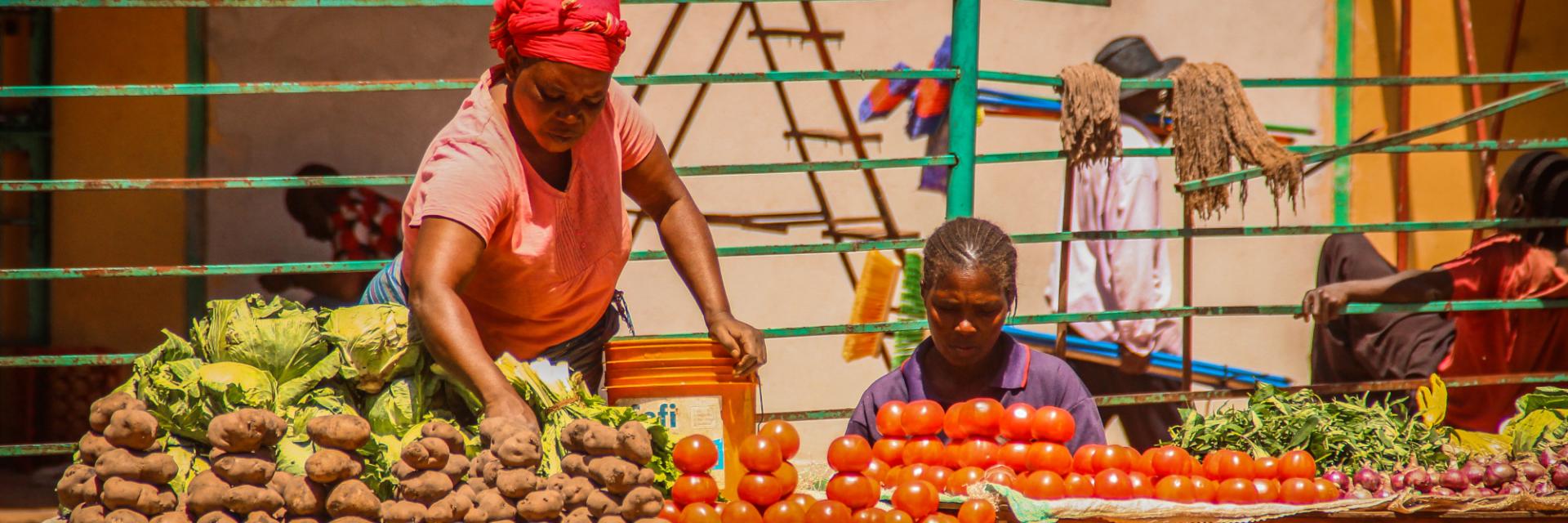4 April March 2022 - (ECA): The emergence of COVID-19 and the crisis in Ukraine have widened the already huge gap in financing the development in Eastern Africa and could further harm the economies of the region that are yet to recover from the pandemic slump, said Mama Keita, Director of UN Economic Commission for Africa (ECA), Office for Eastern Africa.
She made this statement in Dar-es-Salaam, at the East African Trade and Industrialization week, in a session dedicated to discussing with the private sector the topic of Financing of Africa’s recovery.
Calling for measures and efforts to support sustainable growth, Ms Keita stressed that before the COVID-19, Africa needed US$200 billion per year to achieve Agenda 2030 but the pandemic has made things worse, reversing the hard-won gains in many sectors. With the Post-pandemic, an additional US$150 billion per year is required to implement the SDGs.
Sectors that are off track and which need urgent public financing include infrastructure, health, education and climate change.
ECA in Eastern Africa has been organising a series of dialogues on that topic with public sector representatives, civil society organizations, research centres, media, the private sector, and women and youth groups. The outcome of the dialogue will inform the Conference of African Ministers of Finance, Planning and Economic Development (CoM 2022) scheduled to be held in Dakar in May 2022 under the theme: Financing Africa’s recovery: breaking new ground.
Participants in the dialogues agreed that achieving gender parity among the entrepreneurs will require that women have more opportunities and better access to financing. Research has shown that when women are enabled to gain better access to finance, they can make a significant economic contribution to society.
Mobilizing domestic resources is key to closing the financing gap.
The dialogues discussed how the Ukrainian crisis compounds the situation, exacerbating economic and social vulnerabilities and posing threats of food insecurity and loss in purchasing power as global food prices, fertilizers and oil soar. The conflict could widen the gap in financing needed to achieve sustainable development goals, deteriorate fiscal and current account balances and further narrow fiscal spaces down, said Ms Keita.
Charles Kahuthu, CEO & Regional Coordinator of the East African Chamber of Commerce, Industry and Agriculture said that the East African region should stop its food overdependency system. He stressed that the war in Ukraine highlighted how vulnerable some countries become, when they heavily rely on the global food supply.
The participants in the dialogues called for adequate measures to improve domestic resource mobilization and combat Illicit financial flows on the continent as well as reforms in the tax administration. They also recommended more efforts towards access to finance for the private sector, with a special consideration for women entrepreneurs; more capacity building support for the formulation of bankable projects and for the mobilization of climate finance.
The Conference of African Ministers of Finance, Planning and Economic Development is one of the premier forums on the continent for dialogue and exchanges of views between African ministers responsible for finance, planning and economic development and governors of central banks on issues pertinent to the development agenda of Africa.
Issued by:
Office for Eastern Africa
Economic Commission for Africa

